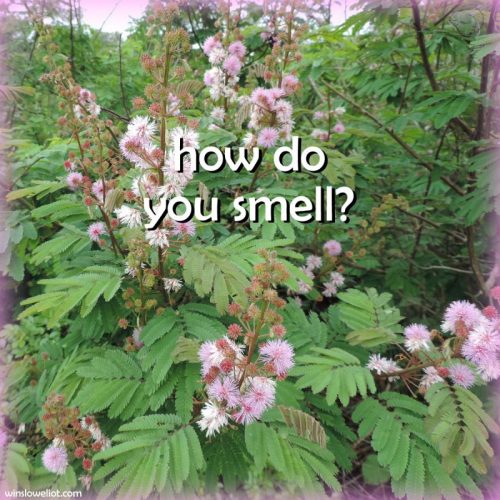
Stillness 7-12: Yesterday I finished rereading a haunted-house novel called The Uninvited, written by Dorothy Macardle in 1942 (it was later made into a charming film starring Ray Milland). In it, the ghost shows up in delightfully classically eerie ways—moans, wails, ice-cold atmosphere, and so forth—but the one I enjoyed the most is the description of clairscentance.
The story follows siblings Roderick and Pamela Fitzgerald, who leave behind their hectic city lives for the peace of the rugged, lonely Devonshire coast, where they purchase a suspiciously inexpensive house by the edge of a cliff. Before long, all sorts of mysterious occurrences convince them the house is haunted. One of experiences is the recurring scent of mimosa that wafts through the drafty rooms and hallways. When they befriend a young woman who used to live there, and who tells them her deceased mother wore mimosa parfum, it doesn’t take much intuition for them to figure out the scent directly correlates with one of the departed spirits.
There are several names for this particular “clair” of smell (as opposed to “clairvoyance” which is clear-seeing): for example, clairscentance, clairolfaction, clairalience. To be clairscentant means that we smell the fragrance of something that does not actually exist in physical reality. We’re smelling energy. We all can develop this particular “clair” and it doesn’t always have to be about smelling a ghost. We can smell a mood, or a feeling, or the future. Or we can smell something we can’t see. A medical medium may smell the negative energy emanating from the physical body, and with practice can differentiate between various diseases. My husband is particularly sensitive to the sense of smell and I always felt when he was out hunting for record albums (a passion of his), he would follow a mysterious “scent” to find the one he was looking for, because there it would always turn up, in some dark, dingy, second-hand store that neither of us had ever seen before.
How do you smell? Clairscentance is one of the most subtle of all the clairs we can develop, and it’s also the most powerful. How can you become more clairscentant? Notice. The more you notice physical smells, the more you develop your extra-sensory sense of smell. A fun way to practice is by using a single essential oil and getting to know its energy. Try getting to know the scent of mimosa, for example, which has a dreamy, nurturing, quality—gentle and calming, visionary, and, as it turns out to be in the story I read, also very loving.
